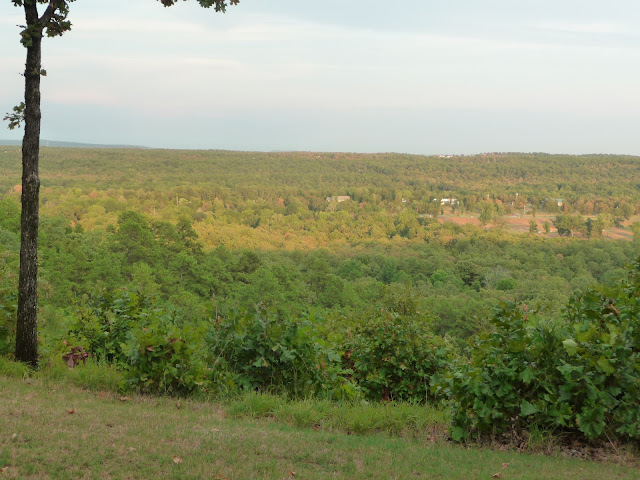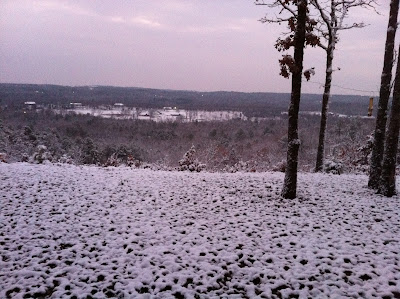We departed Friday from Little Rock, excited to be in the cheap seats, headed for a two-week excursion to the UK and Normandy. We landed in Dublin, made a short hop to Edinburgh, and arrived at breakfast to check into our hotel and begin touring. As a history teacher, two particular areas of interest to me are The Great War and the Protestant Reformation. I had promised to live tweet the best photos for my sweet students. We were thrilled.
Our first day was spent on the Royal Mile in Edinburgh, one of the historically great intellectual centers of Europe. We toured Edinburgh Castle with its deep history, then walked across the courtyard for a reverential visit to the Great War Memorial— heavy with the memory of Scots from all regiments lost between 1914-1918—painstakingly recorded on plaques, in handwritten, leather bound rosters, in stained glass, on carved inscriptions on stone walls. I marveled at the attention the architect had employed to design the complicated space with balance and dignity.
As we enjoyed the views from the castle battlements, I imagined the Bronze Age warriors who had originally fortified that majestic high ground so very long ago, realizing that they were profoundly different than the more recent 16th century House of Stuart faces more familiar to Americans from portraits in history books and from movies. Around us, guards wore kilts, and dignitaries — women in suits and hats and men in kilts — participated in an event on the castle grounds. The view was stunning, but Edinburgh Castle had been sited for defense rather than for its vista. It was more stronghold than palace.
We ate obligatory fish and chips at Deacon Brodie's Tavern, toured a museum of Scottish authors, where Claire and I agreed Robert Burns was a fine specimen of Scottish manhood, and toured the High Kirk of St. Giles, the heart of the Scottish Reformation, from which John Knox waged his passionate campaign for Reformed doctrine for Scotland, resulting in the establishment of Presbyterianism as her state church. We viewed the Chapel of the Most Ancient and Most Noble Order of the Thistle, Scotland's most exalted order of chivalry. I could have spent the day sitting in St. Giles, reading every word and studying every symbol, but indulging my narrow interest in the Reformation would have been tedious for Dan and Claire when there was so much more to see, so we moved on.
Back at the hotel, exhausted from an all-night flight and anticipating an early morning call to pick up our rental car at the train station the next morning, we fell into bed and awoke the following morning, refreshed and anticipating for a day trip to Glencoe and Ft. William in the Highlands.
After a short taxi ride to the train station, we picked up an immaculate, never-before-rented black Mercedes, a last-minute upgrade. Dan decided an automatic was a good idea since he was driving in the UK for the first time, and the Mercedes was available. Claire was extremely concerned that she not spill her coffee in it. Dan's opposite-side driving skills were admirable, and since we come from Conway, the roundabout capital of Arkansas, the Scottish roundabouts were easy. As we left the urban highway for the narrow, winding road to the Highlands, the Scottish countryside opened before us.
The landscape was primeval. The mist hung in the lush valleys, and stately evergreens towered beside the roadway. Stunning. We passed charming villages with stone walls and thatched cottages with blooming flowers. The day was filled with promise — until we rounded a blind curve where a cyclist climbed slowly uphill toward us in the narrow right-hand lane. A silver Volvo rounded the curve behind him, slowing to avoid the cyclist, and the red car who followed closely behind the Volvo rounded the corner but could not stop, rear-ending and propelling him across the center line and into our car, striking us head-on on the driver's side. Airbags deployed all around, smoke filled the cabin, and Dan could not see to steer. We left the roadway and ran headlong off-road into a tree on the passenger side of the car, where I was seated. A Jeep coming down the hill behind us crashed into the other wreckage. The cyclist vanished like a vapor into the peacefulness of the countryside.
We sat in silence, thankful to be alive, yet trying to comprehend our situation. Cars stopped, doors slammed, people milled about, talking to one another, talking on phones. Thanks to the solid construction of the Mercedes, none of us lost consciousness; we were thankful to be able to ask, "Are you OK?" Claire, who had been almost asleep, knew she had hurt her ankle, but seemed otherwise all right. Dan seemed to be intact. I had a deep, dull pain low in my spine, and I knew something was very wrong. I wiggled everything, and all my parts responded, but I knew I could not get out of the car. Another traveler appeared at my door. "I'm a doctor. Are you injured?" I told him it was my back. "Can you move?" He assessed me for a minute and said they would probably send a helicopter for me. He continued his triage.
In a few minutes two police officers in yellow slickers appeared, then an ambulance. They cut the airbags away with a knife. An EMT with dark, close-cropped hair offered me morphine and was surprised when I declined, a noble gesture I later regretted when I was given only ibuprofen instead. Removing me from the car was awkward, but they carefully stabilized me on a backboard with a collar and some kind of giant bubble wrap snugged firmly around me for what was to be a 90 minute drive to a hospital in the town of Larbert. As they loaded us in the ambulance, the EMT said, "I'm going to give you a mask with some gas, and you can breathe deeply if you want it. The gas is what they use when you have your babies." I said, "We don't have gas for babies in the states; we have it at the dentist." He shook his head, incredulous. I dragged deeply on the nitrous and drifted into blissful suspended animation, vaguely aware of the sympathetic EMT narrating the drive for Dan and Claire.
When we arrived an hour and a half later at Forth Valley Royal Hospital in Larbert, I was frustrated and annoyed when they disconnected the gas and I came back to reality. They did my intake at the "A & E" (Accident and Emergency.) I endured the first of many "log rolls," the preferred method for making transfers from surface to surface for patients with spinal injuries, when they moved me to do a CT scan. It required six people, three on either side of me. I came to appreciate the expertise of those with a steady hand and a firm grasp; nevertheless, it terrified me every time I was painfully heaved like a giant passive stick of wood. I was moved to a ward with a number of other patients, where Scottish nurses spoke softly to me and explained what was happening. I took the first of countless pills lying flat of my back, drinking tepid water from a bendy straw. I prayed not to choke. That first night in the ward, a patient with dementia cried out a thousand times in the night, "I've got to go to the toilet. Help me! I need to go to the toilet." I was on morphine by now, and even in my pharmacological stupor, I realized that she was probably not in her right mind. Or was she? Why was no one helping her? It was an endless night.
When you have a spinal injury, the ceiling is the only thing you can see, at least at first. Funny what one remembers. I've always felt stained drop-in ceiling panels reflect something fundamental about the attention to detail of a business establishment. No doubt that sounds up-tight, elitist, and very American. In the midst of our calamity, however, I noted that the ceilings at the Forth Valley Hospital in Larbert were pristine — they seemed the cleanest, whitest I had ever seen, and this was a bizarre comfort to me.
Internet access was uneven, and the family decided that Facebook was our best method of communicating. The next afternoon, Harding professor Mike Wood saw a post about our accident. A blessing: Dr. Wood was ten minutes from the Forth Valley Hospital, staying at a guesthouse with a group of Harding College of Education students who were student teaching in Scotland. Mike came to the hospital and picked Claire up, arranged her lodging for a night, and took care of her. Such a comfort to me to hear a voice from home and to know we could trust him with Claire, who was sore and had a sprained ankle.
The next day, they told us I had an unstable L2 injury that would require surgery. They announced with pride and confidence that they were waiting for an ambulance to transport me to Glasgow, where I would be admitted to the Queen Elizabeth National Spinal Injuries Unit of Southern General Hospital, NHS Scotland's spinal injuries treatment center. Dan took the train back to Edinburgh to get our things from the hotel and move to Glasgow to be with me, and Dr. Wood put Claire on a train for Glasgow. I stared at the perfect ceiling and waited to be log-rolled onto a backboard and into yet another ambulance. I finally arrived at Edenhall Ward in Glasgow about eleven o'clock that night.
A ginger-haired nurse with an intoxicating voice and an air of complete and serene competence gently explained that they had been waiting for me, that I was in good hands, and they were a team of specialists who knew how to help me. I was with Scotland's best unit to treat my kind of injury. They log-rolled me from the gurney onto a bed designed for patients with spinal injuries, infinitely more comfortable than my previous one, and took care of preparing me for surgery. I had felt I was free falling, and somehow, when I arrived at Edenhall Ward, I felt someone had caught me at last.
On the day when I found myself flat of my back — literally — thousands of miles from home, alive but broken on the side of a highway at the mercy of the kindness, expertise, and professionalism of strangers, I was challenged to follow some advice I had dispensed all year with my students at our Christian school. As we had prayed for the needs of CCS families, I had frequently reminded them that in our hardest time, whatever it is, we should also remember to ask God to teach us the lessons He would have us to learn from that circumstance. And I did ask for the lessons.
Yet if fear is evidence of doubt, then I doubted, because I was afraid. I recalled the man's "I believe; help my unbelief!" encounter with Christ as I prayed for strength, for relief, for healing from the One by whose authority I was created, for the skill and professionalism of the surgeons, for Dan and Claire, for my daughter Emma, who was traveling so far away in Greece, for my parents and Dan's parents, whom I knew were undone with worry about us. The nurse gave me pain meds, I stared at the ceiling above my bed in Edenhall Ward, noticing it was not stained, and drifted off to sleep.












